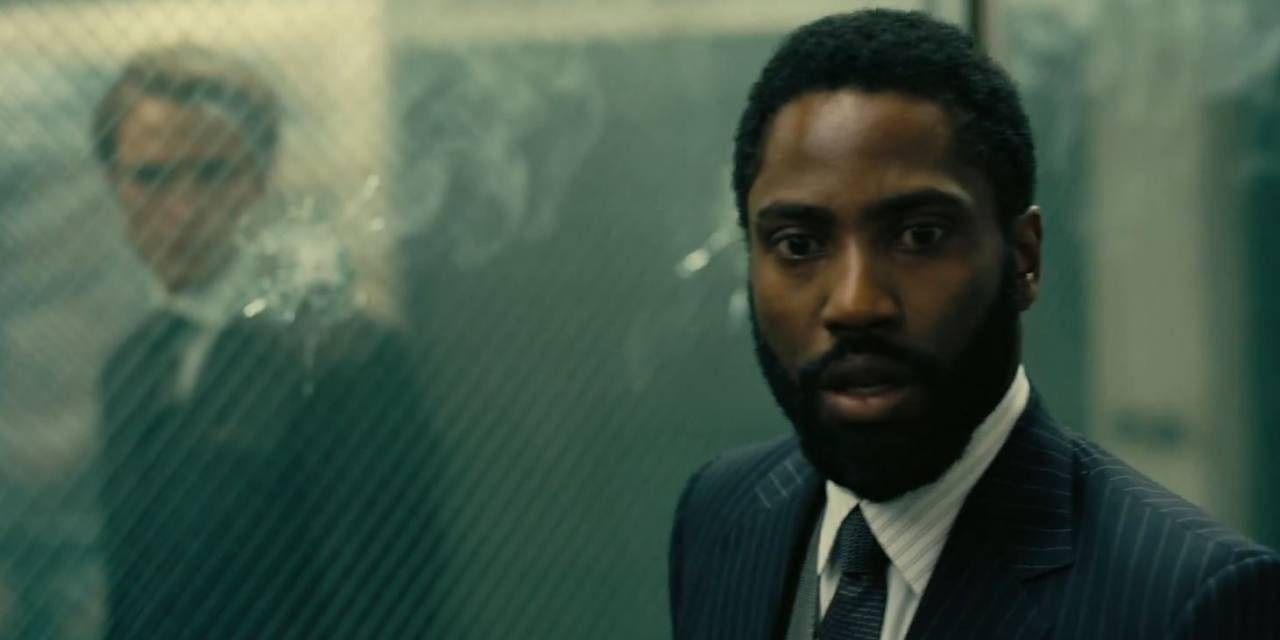
Ever since the staggered mid-COVID release of Christopher Nolan’s time-bending spy thriller Tenet, audiences who have actually seen it have been debating whether or not it’s any good. It’s certainly cinematic, with some breathtaking action sequences and a star-studded cast to die for, but it doesn’t leave as much of a lasting impression as a movie like The Dark Knight or Dunkirk. The sound mix is often noted as Tenet’s main flaw – if the dialogue is inaudible, then the audience is taken out of the story – but all of Nolan’s films have inconsistent sound design. The director’s stories are usually compelling enough to distract from the sound mix. The sound is noticeable in Tenet because its story isn’t as compelling as that of Inception or Batman Begins.
What really holds Tenet back is its writing. The action is spectacularly staged, Ludwig Göransson’s score is suitably gripping, and the cast of A-listers all give captivating performances, but it’s all wasted on a flimsy script. Nolan’s Tenet script – written as a solo effort without any contributions from his brother and writing partner Jonathan Nolan – suffers from some fundamental flaws, like clunky exposition and thinly drawn characters. Naming the protagonist “The Protagonist” is just pretentious. It’s more suited to a student film than a $200 million blockbuster.
RELATED: Christopher Nolan Says Tenet Was a Success, Actually
The script’s attempts to pair the intellectual gravitas of Memento with the unbridled goofiness of the James Bond movies fall flat, as it brings out the worst in both: incomprehensible Nolan-speak and cliché-ridden storytelling. Andrei Sator, the Russian baddie played with an amped-up Bond villain accent by Kenneth Branagh, has been criticized for perpetuating Eastern European stereotypes that were created by old spy movies in the first place. Whereas movies like Kingsman embrace the fun parts of Bond movies and reject the dated parts, Tenet rejects the fun and embraces the tropes that have long been retired.

First and foremost, for an action movie script to work, the plot has to be driven by action. Shane Black’s command of action-driven storytelling has made him one of the most celebrated screenwriters in Hollywood. In Tenet, most of the plot is half-explained and half-shrouded in mystery through overly convoluted, exposition-heavy dialogue, then spectacular action scenes come and go without delivering any key plot information. The movie has a lot of scenes that ignore the “show, don’t tell” rule. The Protagonist is introduced to time inversion with a dry explanation by a disinterested scientist, who acts like Q if he found his job to be mundane. Tenet’s overwrought explanations of the theoretical concepts at the core of its premise are awfully reminiscent of the overwrought explanations of the theoretical concepts in Interstellar, one of that movie’s most glaring weaknesses.
All the enigmatic dialogue in Tenet gives answers without really giving answers, with the usual copout spy movie excuse that information is being withheld due to security clearances. This can work in a run-of-the-mill MacGuffin-based espionage thriller, but not in a movie whose villains are attacking from the future – at that point, it’s full-on science fiction and audiences need a better explanation. Tenet’s failings in establishing the rules and stakes of time inversion are even more prevalent when compared to Nolan’s own Inception, which explained how dream levels work much more effectively than Tenet explained its own complicated world. The dream levels of Inception paved the way for a unique kind of cross-cutting that made it feel wholly original and cinematic. Tenet’s time inversion, on the other hand, merely paves the way for some cool-looking shots of explosions and car crashes played in reverse.
One of the most consistently praised aspects of Tenet is its action. It does have plenty of eye-popping set pieces with astounding practical stunt work and gorgeous cinematography, but even those scenes are let down by the script, because the action often has no tangible purpose. The Protagonist breaks into an arms dealer’s apartment to investigate inverted bullets and climbs atop a fire truck to steal a MacGuffin from a moving vehicle, but these visually stunning sequences end up feeling empty because the stakes haven’t been established effectively. In both cases, why the Protagonist needs to do these things is never clarified. An actual plane was crashed into a building to create one of the movie’s most exciting set pieces, but it doesn’t have the impact it could have, because the audience doesn’t know why a plane needed to be crashed into a building for the Protagonist to steal a drawing.
Ultimately, fans of action movies will get more than their fill of explosive shootouts and thrilling chase sequences from Tenet. Its action is much more impressively choreographed and beautifully shot than the average Hollywood thriller. But as a Christopher Nolan movie about a time-traveling James Bond, it promised to be so much more. Inception works so well because underneath all the mind-bending dream-within-a-dream headiness of the plot, it tells the story of a father who just wants to get home to his kids. Tenet’s Protagonist doesn’t have the same emotional driving force – he isn’t even 100% sure who he is until the end. And with its pulpy, action-packed snow fortress subplot, Inception even did a better job of homaging the escapist fun of the Bond movies than Tenet.
MORE: Christopher Nolan May Not Work With Warner Bros. Due To HBO Max Plan

